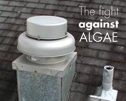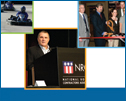As part of the federal government's recently approved economic stimulus package, the U.S. Small Business Administration (SBA) was charged with creating the Business Stabilization Program.
According to the stimulus bill, the program calls for providing small businesses loans of up to $35,000, essentially interest-free. The government intends for the money to be used to pay down existing debt resulting from bank-issued loans.
If a small business receives a stabilization loan, the money can be used to make payments on pre-existing loans for up to six months and stabilization loan repayment will not be due for a year following disbursement of funds (though it must be fully repayed within five years).According to the guidelines provided in the bill, banks will issue the loans to small businesses and the SBA will guarantee all loans 100 percent. If a small business defaults on a stabilization loan, the SBA will pay the bank the outstanding amount. The SBA also will subsidize any interest incurred during a loan's duration.
The measure is an extraordinary opportunity for small businesses during this difficult time. Congress has allocated $255 million to fund the program though September 2010, but that amount only applies to the program's costs and subsidies—the total loan volume could be several billion dollars.
Many details remain to be finalized, not the least of which is who will be appointed SBA administrator. The agency currently is receiving direction from Acting Administrator Darryl Hairston and is trying to create the loan program with little congressional guidance. However, Congress stipulated the agency was to issue specific guidelines regarding the Business Stabilization Program within 15 days of the bill's passage, which occurred Feb. 17. But as of March 16, no such guidelines had been posted on the SBA's Web site.
The stimulus package contains several other provisions that can help small businesses. In March, NRCA issued a Special Report detailing how the bill will affect the roofing industry and conducted four webinars focusing on separate aspects of the bill. To read the Special Report or learn more about the webinars, log on to www.nrca.net.
Ambika Puniani Bailey is editor of Professional Roofing and NRCA's senior director of communications.


